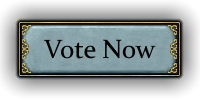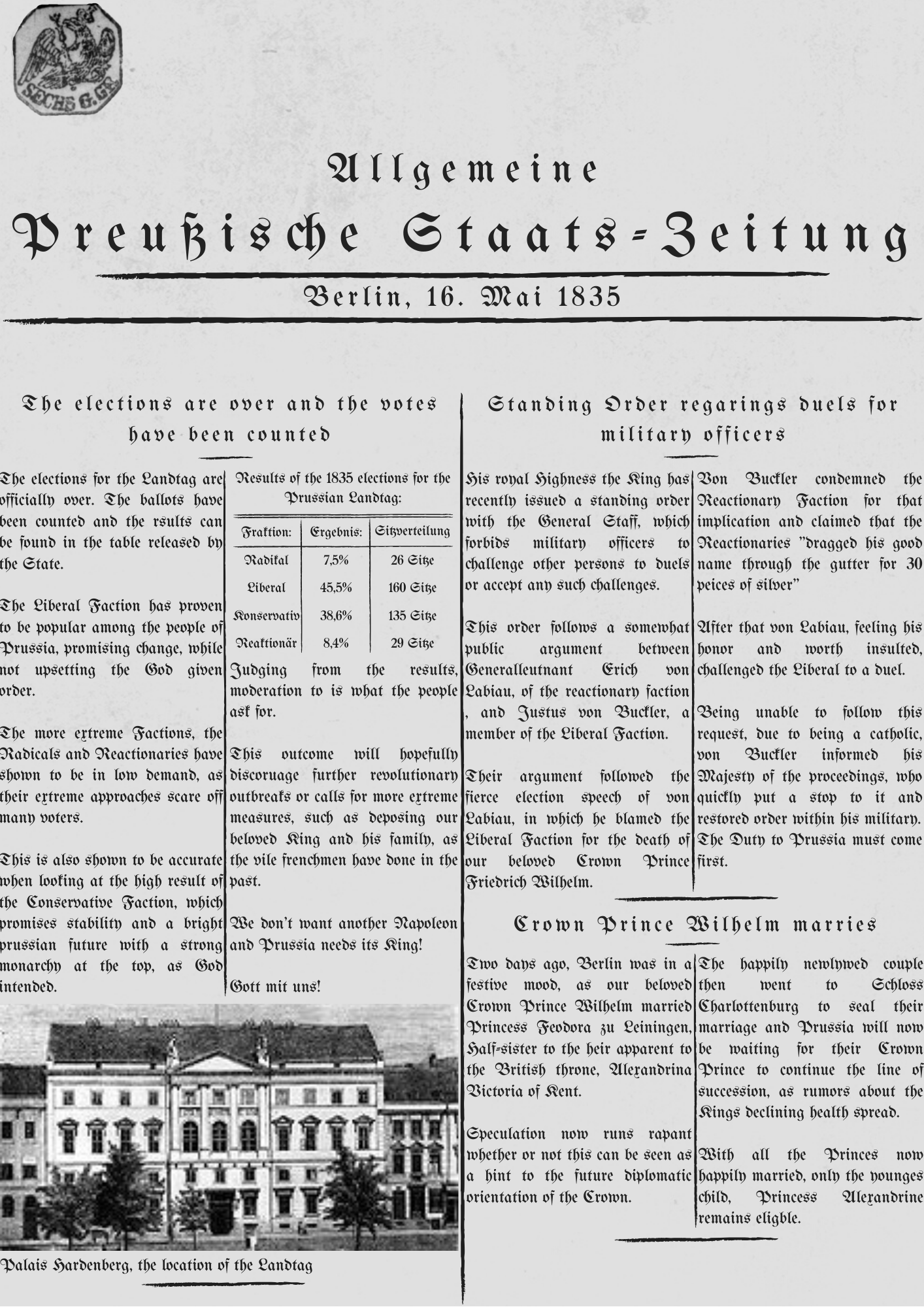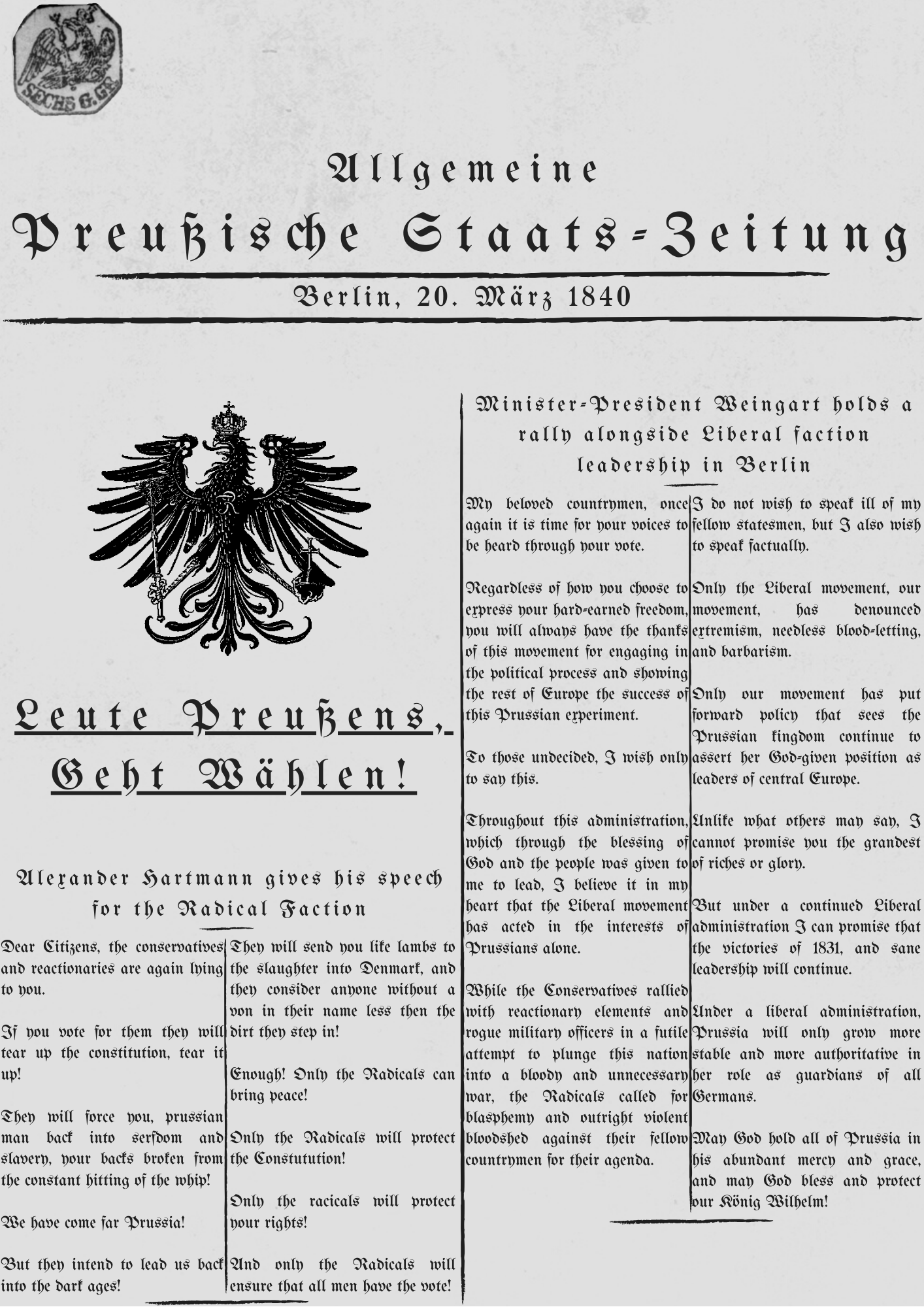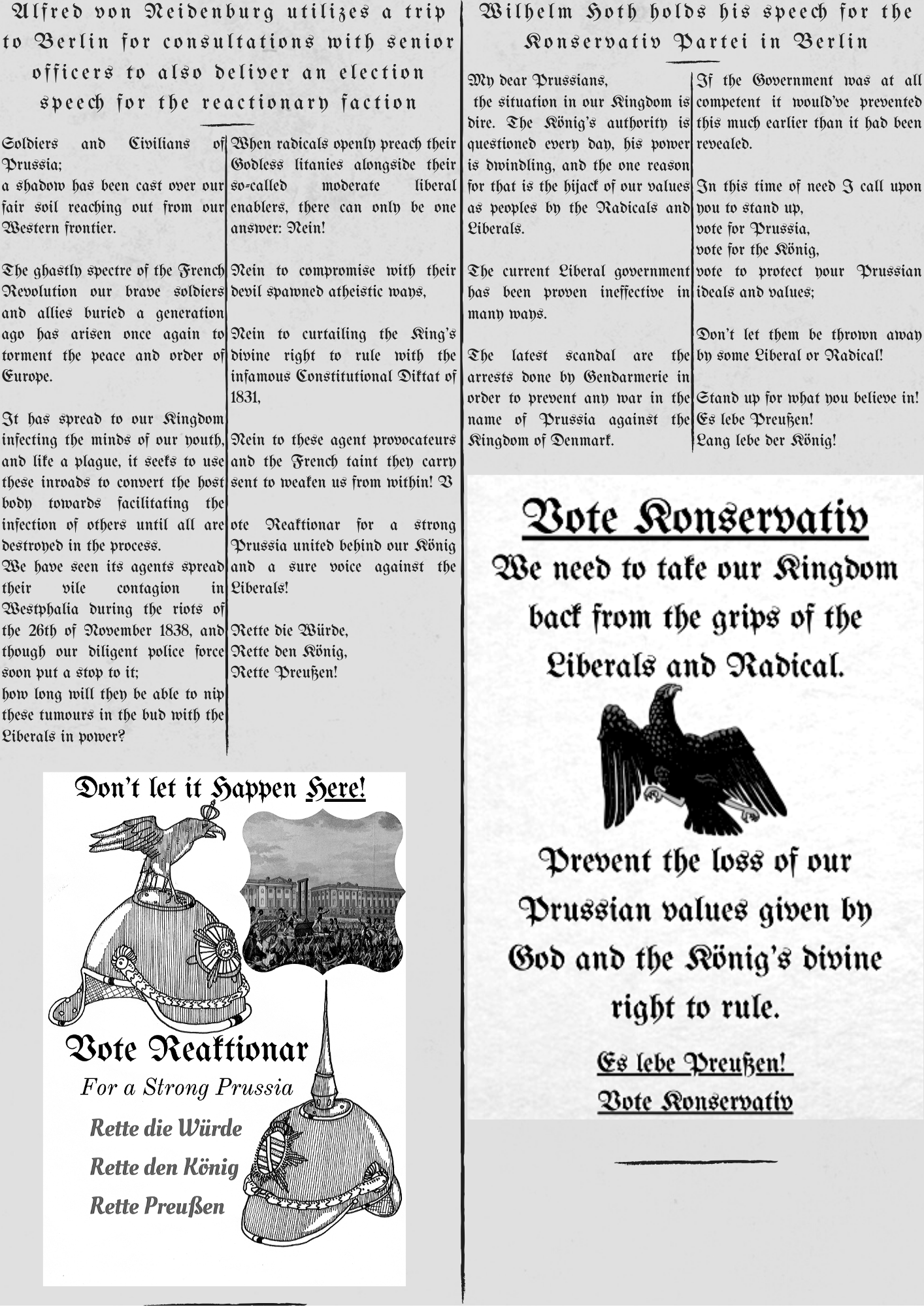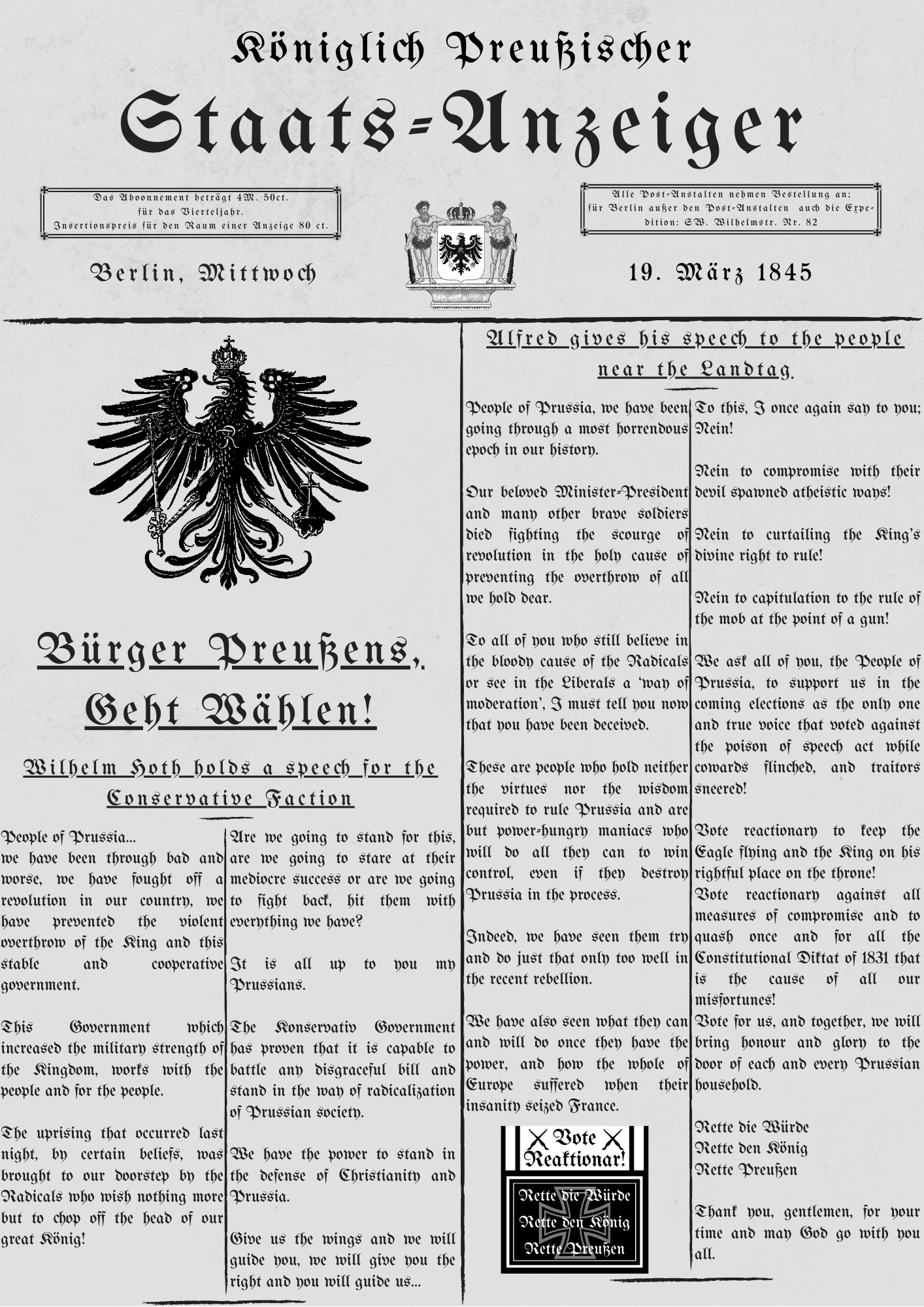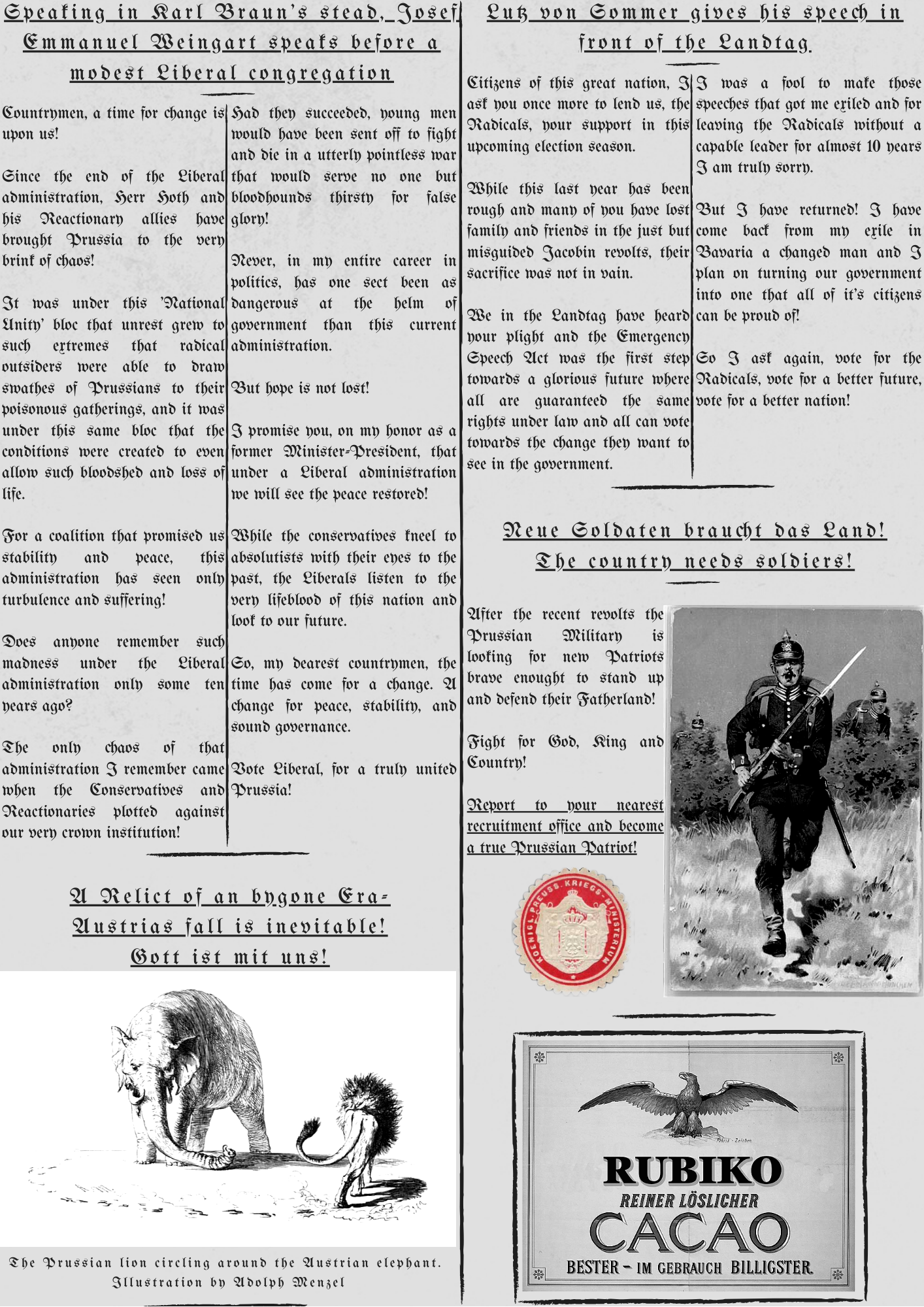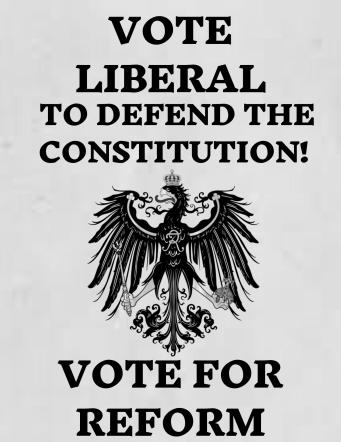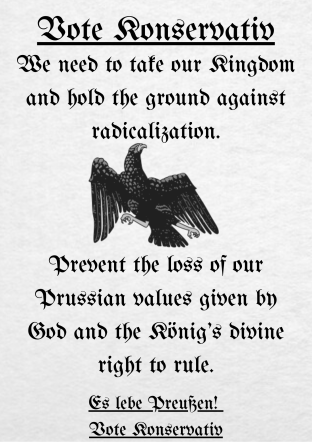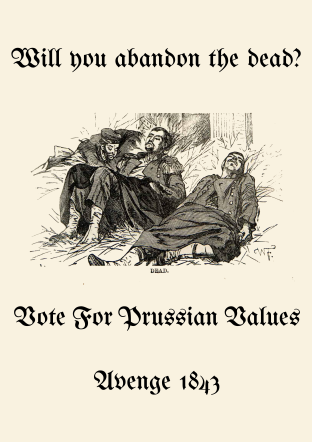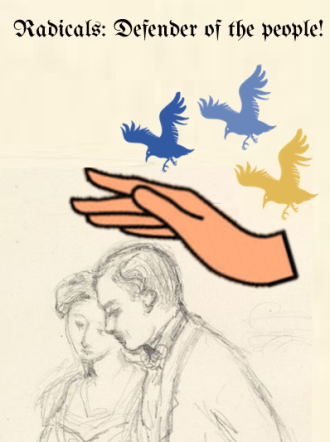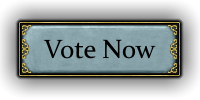When Napoleon stood defeated at Waterloo in 1815, a new age dawned for Prussia. In the Congress of Vienna, the Kingdom was awarded territories in the Rhineland to compensate its losses during the Napoleonic Wars. These new territories would provide the Kingdom with new riches, but it would also be the start of difficult times for King Frederick William III.

In the aftermath of Napoleon’s defeat, King Frederick William III formed the Holy Alliance with the Emperor of Austria and the Tsar of Russia to ensure peace and stability on the European continent. This included countering any liberal movements that sought to undermine the authority of the absolute monarchy.
In Prussia itself, the reform movements came to a halt in 1819. When the Russian envoy, August von Kotzebue, was killed by a radical student, the governments of the German Confederation responded with the Carlsbad Decrees. The Decrees imposed reactionary restrictions, including banning nationalist fraternities ("Burschenschaften"), removing liberal university professors and expanding the censorship of the press. Following the Decrees, notable reformers such as von Humboldt and von Beyme were sacked as ministers and replaced by more conservative figures.
While the reactionary movement might have silenced the reformers in public, many liberals still held secret meetings to discuss their opinions on the matters of state. This tradition fostered a culture of debate and criticism, which was deeply rooted in Prussia and went back to philosophers such as Immanuel Kant. A plot soon began to form in Prussia’s highest ranks…

Gatherings in salons would foster a culture of critical thinking among the middle classes in Prussia.
At the same time, economic malaise was forcing more and more lower nobles to sell their estates to the middle class, who were not represented in government affairs. This created a situation where more and more people started demanding reform to have their voices heard.
When revolution broke out in France in 1830, it soon spread across Europe. In July, the Bourbon King of France, Charles X, was ousted and replace by Louis-Philippe, Duke of Orléans. In August, unrest spread to the neighbouring United Kingdom of the Netherlands, where Belgian nationalists rose up against the Dutch monarchy. In September, unrest spread across the border into Prussian Rhineland when peasants in Aachen rose up against their rulers. Other cities in the region soon followed when King Frederick William III sent an army to deal with the unrest.

Episode of the Belgian Revolution of 1830, Gustaf Wappers (1834)
While the Belgian nationalists dealt a devastating blow to the Dutch armies in Brussels, the Prussian King had his hands full with dealing with the Rhineland insurrection. Things only got worse, however, as a mutiny broke out by the end of September of 1830. Soldiers who were ordered to fire upon the unruly peasants in Aachen simply laid down their arms and joined their fellow Germans in their call for reform.
The situation only worsened in October when a rebellion broke out in Russian Poland, threatening to spill over into Prussia as well. The King was now torn between reinforcing the Rhineland or preventing the Polish from rising up in Eastern Prussia. And so the King did what most Kings would do in that situation, he tasked his Cabinet with finding a solution. However, political infighting soon ensued and the Cabinet was quickly torn between those who wanted to increase measures against the Polish and those who wanted to reinforce the Rhineland. Left with an indecisive Cabinet, the King took matters into his own hands and pulled back troops from the Rhineland to reinforce the border with Russian Poland.
By December, the situation in Belgium had escalated to such an extent that the United Kingdom of Great Britain and Ireland intervened. An international conference was called together in London to decide the fate of the United Kingdom of the Netherlands. The Dutch King, hoping to gain support from Prussia and Russia for his cause, only met reluctance. Both the Russian Tsar and the Prussian King had their hands full with internal rebellions and could not send military support to the Dutch, the Holy Alliance had crumbled. As a result, Belgian independence was recognized and the Republic of Belgium was established.

The Polish Revolution would occupy the Russians for several years.
The success of the government in Brussels caused the revolutionaries in the Rhineland to increase their efforts and further escalated the situation. In the meantime, liberal forces in Berlin increased their pressure on King Frederick William III. As Berlin was increasingly losing control of the rich industrial Rhineland, many within the middle class started to wonder whether or not the government was capable of handling the situation. In January of 1831, this culminated in the Berlin Declaration.
The Berlin Declaration of 1831 was an anonymous document released as a pamphlet in the government quarters of Berlin. It sparked outrage among conservatives because it called for the creation of a Constitution. People did not forget the promise Frederick William made during the Napoleonic wars to step away from absolutism and turn Prussia into a constitutional monarchy. The Berlin Declaration directly led to the spread of the revolution to the heart of Prussia, as liberal agitators organized themselves and started gathering in one of Berlin’s theatres to form a parliament.

The Berliner Parliament of 1831 was a short lived parliament formed by liberal agitators with the intent of establishing a Constitution for Prussia.
By now, the situation had become increasingly unstable in Berlin and Crown Prince Frederick William was sent onto the streets to calm down the Berlin citizenry. A road accident in which the Crown Prince was killed occurred however, causing the King to suffer from a heart attack on the 20th of January. Although the King recovered, his weakened state allowed the liberal movement to complete their plot. On the 25th of January, a retired Wilhelm von Humboldt returned to politics and approached the King with a proposal. As a prominent reformist, he held considerable power within the liberal movement. Humboldt managed to convince the King that action had to be taken in regards to the Berlin Parliament. While the Parliamentarians were drafting a radical Constitution, the King would need to appoint his own committee to draft a less radical Constitution if he wanted to remain relevant.
And thus an ailing King agreed with von Humboldt’s proposal. A committee, comprising of both conservatives and liberals was formed to draft a Constitution for Prussia. After several weeks, their work was done and a Constitution was adopted. Known as the 1831 Prussian Constitution, the document transformed Prussia from an absolute monarchy into a constitutional parliamentary monarchy. The Berlin Parliament dissolved soon after as a result of internal divisions between moderates who adopted the 1831 Constitution and radicals who opposed it. In March of that year, the first elections were held following the system of census suffrage; only those who paid a certain amount of taxes were allowed to vote.
The adoption of the 1831 Constitution ended the rebellion in the Rhineland and in the capital, but much of the underlying unrest remained unresolved. Peasants felt betrayed by the middle class, who stole their revolution. The nobility saw their influence reduced as a unicameral Landtag was established. And the army staff was begging for reform.
The first elected Prussian government was headed by von Humboldt and several other moderate liberals. After enacting several economic reforms, such as the foundation of the Deutsches Zollverein in 1834, Prussia began to prosper again, alleviating some of the economic troubles of the past few years.

Wilhelm von Humboldt, first Minister-President of Prussia (1831-1835).
However, on the 8th of April 1835, von Humboldt passed away, once again sending Prussia into a state of turmoil.
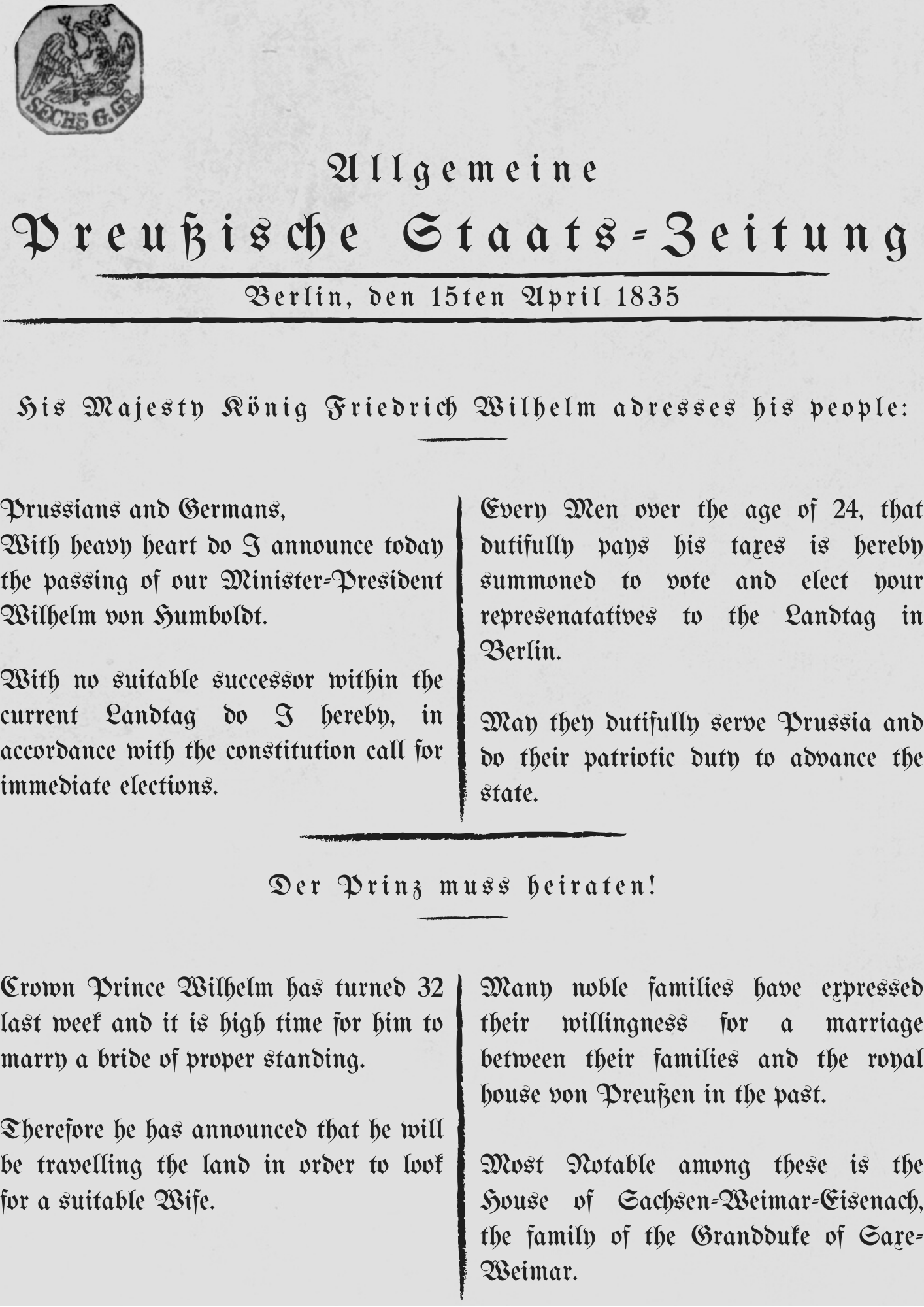
Alongside the publication of the official Prussian state newspaper, elections have been called and a new government will have to lead the country back on track. At the moment, there are four major factions in the Landtag:

Political scene of Europe in 1836---------------------------------------------------------------------------------------------------------------------------
Welcome to the March of the Eagle: an interactive Victoria 2 Prussia AAR where the people of the forums get to participate in the running of 19th century Prussia as it sets out in its search for glory and a permanent place in Europe’s history. Your vote will decide the patch Prussia takes in this century of progress, prosperity, social changes and… revolutions.
If you want to make a character and join the IAAR you can by joining the Victoria 2 Prussia iAAR discord here. Please keep in character discussion solely to discord, in order to reduce clutter on the forums.
If you just want to spectate on the forum, you can comment on posts that will be made and you can vote in the elections for the Landtag.
Characters have 1 primary role and 1 secondary role. There are 2 primary roles and 3 secondary roles a person can pick from. These are:
Primary role:
Noble: Players who choose to play as nobles will have a higher standing with the King and will have the ability to ask him for favors using the favor system
Commoner: Players who choose to play as commoners will have benefits during elections and will give a 0.5% boost to the faction they are part of.
Secondary role:
Capitalist: Players who play as capitalists will be able to invest in factories and infrastructure, contributing to the wealth of Prussia.
Military Officer: Military Officers lead armies into battle and defend the homeland against foreign and domestic threats.
Bureaucrat/Clergyman: Players who play as bureaucrats or clergymen will be the only ones who can write bills about technologies in-game and will thus be highly needed to improve Prussia’s scientific knowledge. If no one proposes technologies, the Court Statistician (played by @SibCDC) will decide.
Character Applications are open! (and will never close!). For those of you who want to know the details of the rules in place. Click here for the Ruleset.
Finally, we will be playing the game in Victoria 2 (duh) with both DLC enabled and with the HPM mod. For more information, just ask here or take a look at the rules linked above. Everyone is welcome to join the Discord even if they do not participate. We hope to see you soon in the first election of 1836!

In the aftermath of Napoleon’s defeat, King Frederick William III formed the Holy Alliance with the Emperor of Austria and the Tsar of Russia to ensure peace and stability on the European continent. This included countering any liberal movements that sought to undermine the authority of the absolute monarchy.
In Prussia itself, the reform movements came to a halt in 1819. When the Russian envoy, August von Kotzebue, was killed by a radical student, the governments of the German Confederation responded with the Carlsbad Decrees. The Decrees imposed reactionary restrictions, including banning nationalist fraternities ("Burschenschaften"), removing liberal university professors and expanding the censorship of the press. Following the Decrees, notable reformers such as von Humboldt and von Beyme were sacked as ministers and replaced by more conservative figures.
While the reactionary movement might have silenced the reformers in public, many liberals still held secret meetings to discuss their opinions on the matters of state. This tradition fostered a culture of debate and criticism, which was deeply rooted in Prussia and went back to philosophers such as Immanuel Kant. A plot soon began to form in Prussia’s highest ranks…

Gatherings in salons would foster a culture of critical thinking among the middle classes in Prussia.
At the same time, economic malaise was forcing more and more lower nobles to sell their estates to the middle class, who were not represented in government affairs. This created a situation where more and more people started demanding reform to have their voices heard.
When revolution broke out in France in 1830, it soon spread across Europe. In July, the Bourbon King of France, Charles X, was ousted and replace by Louis-Philippe, Duke of Orléans. In August, unrest spread to the neighbouring United Kingdom of the Netherlands, where Belgian nationalists rose up against the Dutch monarchy. In September, unrest spread across the border into Prussian Rhineland when peasants in Aachen rose up against their rulers. Other cities in the region soon followed when King Frederick William III sent an army to deal with the unrest.

Episode of the Belgian Revolution of 1830, Gustaf Wappers (1834)
While the Belgian nationalists dealt a devastating blow to the Dutch armies in Brussels, the Prussian King had his hands full with dealing with the Rhineland insurrection. Things only got worse, however, as a mutiny broke out by the end of September of 1830. Soldiers who were ordered to fire upon the unruly peasants in Aachen simply laid down their arms and joined their fellow Germans in their call for reform.
The situation only worsened in October when a rebellion broke out in Russian Poland, threatening to spill over into Prussia as well. The King was now torn between reinforcing the Rhineland or preventing the Polish from rising up in Eastern Prussia. And so the King did what most Kings would do in that situation, he tasked his Cabinet with finding a solution. However, political infighting soon ensued and the Cabinet was quickly torn between those who wanted to increase measures against the Polish and those who wanted to reinforce the Rhineland. Left with an indecisive Cabinet, the King took matters into his own hands and pulled back troops from the Rhineland to reinforce the border with Russian Poland.
By December, the situation in Belgium had escalated to such an extent that the United Kingdom of Great Britain and Ireland intervened. An international conference was called together in London to decide the fate of the United Kingdom of the Netherlands. The Dutch King, hoping to gain support from Prussia and Russia for his cause, only met reluctance. Both the Russian Tsar and the Prussian King had their hands full with internal rebellions and could not send military support to the Dutch, the Holy Alliance had crumbled. As a result, Belgian independence was recognized and the Republic of Belgium was established.

The Polish Revolution would occupy the Russians for several years.
The success of the government in Brussels caused the revolutionaries in the Rhineland to increase their efforts and further escalated the situation. In the meantime, liberal forces in Berlin increased their pressure on King Frederick William III. As Berlin was increasingly losing control of the rich industrial Rhineland, many within the middle class started to wonder whether or not the government was capable of handling the situation. In January of 1831, this culminated in the Berlin Declaration.
The Berlin Declaration of 1831 was an anonymous document released as a pamphlet in the government quarters of Berlin. It sparked outrage among conservatives because it called for the creation of a Constitution. People did not forget the promise Frederick William made during the Napoleonic wars to step away from absolutism and turn Prussia into a constitutional monarchy. The Berlin Declaration directly led to the spread of the revolution to the heart of Prussia, as liberal agitators organized themselves and started gathering in one of Berlin’s theatres to form a parliament.

The Berliner Parliament of 1831 was a short lived parliament formed by liberal agitators with the intent of establishing a Constitution for Prussia.
By now, the situation had become increasingly unstable in Berlin and Crown Prince Frederick William was sent onto the streets to calm down the Berlin citizenry. A road accident in which the Crown Prince was killed occurred however, causing the King to suffer from a heart attack on the 20th of January. Although the King recovered, his weakened state allowed the liberal movement to complete their plot. On the 25th of January, a retired Wilhelm von Humboldt returned to politics and approached the King with a proposal. As a prominent reformist, he held considerable power within the liberal movement. Humboldt managed to convince the King that action had to be taken in regards to the Berlin Parliament. While the Parliamentarians were drafting a radical Constitution, the King would need to appoint his own committee to draft a less radical Constitution if he wanted to remain relevant.
And thus an ailing King agreed with von Humboldt’s proposal. A committee, comprising of both conservatives and liberals was formed to draft a Constitution for Prussia. After several weeks, their work was done and a Constitution was adopted. Known as the 1831 Prussian Constitution, the document transformed Prussia from an absolute monarchy into a constitutional parliamentary monarchy. The Berlin Parliament dissolved soon after as a result of internal divisions between moderates who adopted the 1831 Constitution and radicals who opposed it. In March of that year, the first elections were held following the system of census suffrage; only those who paid a certain amount of taxes were allowed to vote.
The adoption of the 1831 Constitution ended the rebellion in the Rhineland and in the capital, but much of the underlying unrest remained unresolved. Peasants felt betrayed by the middle class, who stole their revolution. The nobility saw their influence reduced as a unicameral Landtag was established. And the army staff was begging for reform.
The first elected Prussian government was headed by von Humboldt and several other moderate liberals. After enacting several economic reforms, such as the foundation of the Deutsches Zollverein in 1834, Prussia began to prosper again, alleviating some of the economic troubles of the past few years.

Wilhelm von Humboldt, first Minister-President of Prussia (1831-1835).
However, on the 8th of April 1835, von Humboldt passed away, once again sending Prussia into a state of turmoil.

Alongside the publication of the official Prussian state newspaper, elections have been called and a new government will have to lead the country back on track. At the moment, there are four major factions in the Landtag:
- The Radicals: radical liberals who think the 1831 Constitution didn’t go far enough
- The Liberals: moderate liberals who accept the 1831 Constitution and only propose gradual reform going forward
- The Conservatives: moderate conservatives who accept the idea of a Constitution but who wish to revise the current one to give the nobility some of their old influence back
- The Reactionaries: reactionary conservatives who reject the idea of a Constitution and who wish to return to the days of the absolute monarchy

Political scene of Europe in 1836
Welcome to the March of the Eagle: an interactive Victoria 2 Prussia AAR where the people of the forums get to participate in the running of 19th century Prussia as it sets out in its search for glory and a permanent place in Europe’s history. Your vote will decide the patch Prussia takes in this century of progress, prosperity, social changes and… revolutions.
If you want to make a character and join the IAAR you can by joining the Victoria 2 Prussia iAAR discord here. Please keep in character discussion solely to discord, in order to reduce clutter on the forums.
If you just want to spectate on the forum, you can comment on posts that will be made and you can vote in the elections for the Landtag.
Characters have 1 primary role and 1 secondary role. There are 2 primary roles and 3 secondary roles a person can pick from. These are:
Primary role:
Noble: Players who choose to play as nobles will have a higher standing with the King and will have the ability to ask him for favors using the favor system
Commoner: Players who choose to play as commoners will have benefits during elections and will give a 0.5% boost to the faction they are part of.
Secondary role:
Capitalist: Players who play as capitalists will be able to invest in factories and infrastructure, contributing to the wealth of Prussia.
Military Officer: Military Officers lead armies into battle and defend the homeland against foreign and domestic threats.
Bureaucrat/Clergyman: Players who play as bureaucrats or clergymen will be the only ones who can write bills about technologies in-game and will thus be highly needed to improve Prussia’s scientific knowledge. If no one proposes technologies, the Court Statistician (played by @SibCDC) will decide.
Character Applications are open! (and will never close!). For those of you who want to know the details of the rules in place. Click here for the Ruleset.
Finally, we will be playing the game in Victoria 2 (duh) with both DLC enabled and with the HPM mod. For more information, just ask here or take a look at the rules linked above. Everyone is welcome to join the Discord even if they do not participate. We hope to see you soon in the first election of 1836!
Interactivity approved by Qorten
Last edited:
- 3













